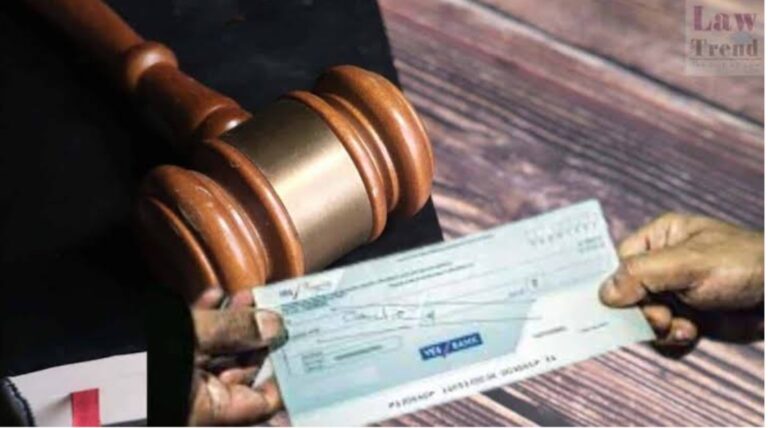Section 138 of the Negotiable Instruments Act, 1881, is a penal provision that comes into play when a cheque issued by a drawer is dishonoured due to insufficient funds or if it exceeds the arrangement with the bank, and the drawer fails to pay the amount within 15 days of receiving a legal notice demanding payment. But what happens when a part of the cheque amount is paid before its presentation? Can a complaint still be filed for the remaining balance?
Key Legal Issue: Part Payment After Cheque Issuance
The core question is whether a complaint under Section 138 is maintainable when part payment of the cheque amount has been made after the cheque is issued but before it is presented. This issue was thoroughly examined by the Supreme Court of India in the case of Dashrathbhai Trikambhai Patel v. Hitesh Mahendrabhai Patel.
In this case, the complainant had presented a cheque for ₹20,00,000. However, before the cheque was presented, the drawer had already paid ₹4,09,315. The Supreme Court held that since this part payment was not endorsed on the cheque as required under Section 56 of the NI Act, the cheque did not represent a legally enforceable debt for the full amount, thus rendering Section 138 inapplicable.
What Does Section 56 of the NI Act Say?
Section 56 of the NI Act states:
“No writing on a negotiable instrument is valid for the purpose of negotiation if such writing purports to transfer only a part of the amount appearing to be due on the instrument; but where such amount has been partly paid, a note to that effect may be endorsed on the instrument, which may then be negotiated for the balance.”
This provision essentially relates to the negotiation of cheques, not their presentation for payment. To understand this better, we must examine the term “negotiation”, as defined in Section 14 of the NI Act:
“When a promissory note, bill of exchange or cheque is transferred to any person so as to constitute that person the holder thereof, the instrument is said to be negotiated.”
Therefore, the requirement of endorsement under Section 56 arises only when a cheque is being transferred (negotiated) to another party, not when the holder is presenting the cheque for encashment.
Indorsement and Its Purpose
As per Section 15 of the NI Act, indorsement refers to signing the instrument for negotiation purposes. Hence, unless the cheque is being transferred to another party, there is no statutory requirement for endorsement of part payment at the time of presentation.
Thus, the interpretation adopted by the Supreme Court in the above case, which imposed an endorsement requirement even at the presentation stage, appears inconsistent with the legislative intent behind Sections 14, 15, and 56 of the NI Act.
Relevance of Section 82 – Discharge of Liability
Section 82(c) of the NI Act provides that a maker or drawer is discharged from liability only upon full payment of the amount due under the instrument. Partial payment does not discharge the legal liability arising from the cheque.
Hence, if only part of the amount under the cheque is paid, the drawer remains liable for the unpaid balance. If the cheque bounces, the holder can issue a notice under Section 138(c) demanding the balance amount. If the drawer fails to pay this within 15 days, a valid complaint under Section 138 can be instituted.
Crucial Importance of the Statutory Notice
For a complaint to be maintainable in case of part-payment, the statutory notice under Section 138 must be properly worded. The notice should:
- Clearly acknowledge the part payment made.
- Demand only the unpaid balance amount.
If the notice demands the full cheque amount, ignoring the part payment, it will be considered defective, and the complaint is likely to fail.
This principle has been affirmed by the Bombay High Court in Ramnarayan v. Proprietor, Daulat Enterprises, (2005) 4 Mah LJ 796. The Court ruled that a complaint under Section 138 is maintainable if the notice discloses the part-payment and demands only the remaining unpaid balance.
Objective of the NI Act and Judicial Approach
The objective behind Section 138 is to ensure the credibility of financial instruments like cheques and promote commercial integrity. This has been emphasized by the Supreme Court in Sunil Todi v. State of Gujarat [(2022) 16 SCC 762], where the Court reiterated that the NI Act aims to promote the acceptability and reliability of cheques in business transactions.
Therefore, interpreting Section 138 in a way that allows the holder to proceed against the drawer for the balance amount after part-payment aligns with the intent of the law.
Conclusion: When Is a Complaint for Balance Amount Maintainable?
A complaint under Section 138 of the NI Act is maintainable even after part payment has been made if the following conditions are met:
- The cheque is dishonoured after presentation.
- The statutory notice issued under Section 138(c) clearly mentions the part payment and demands only the remaining balance.
- The drawer fails to pay the balance amount within 15 days of receipt of the notice.
However, if the notice wrongly demands the full cheque amount without adjusting for the part-payment, the complaint is likely to fail for being based on an invalid notice.
